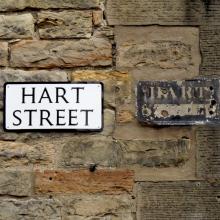
HART STREET AND HART STREET LANE
As I meandered one recent evening, scrutinising the ebb and flow of the Georgian gloaming, it suddenly struck me that the Situationists were right after all: authentic social life has been superseded by its representation.
It seemed clear that many local households took satisfaction in, indeed derived meaning from, their proximity to the pavement. Displaying themselves and their wares to the passer-by, they take enthusiastic part in the New Town's very own Society of the Spectacle.
Serendipitously, my main interest in life is the vicarious thrill of observing others fulfilled by the theatre of their fixtures and fittings.
In the New Town, we all get what we want.
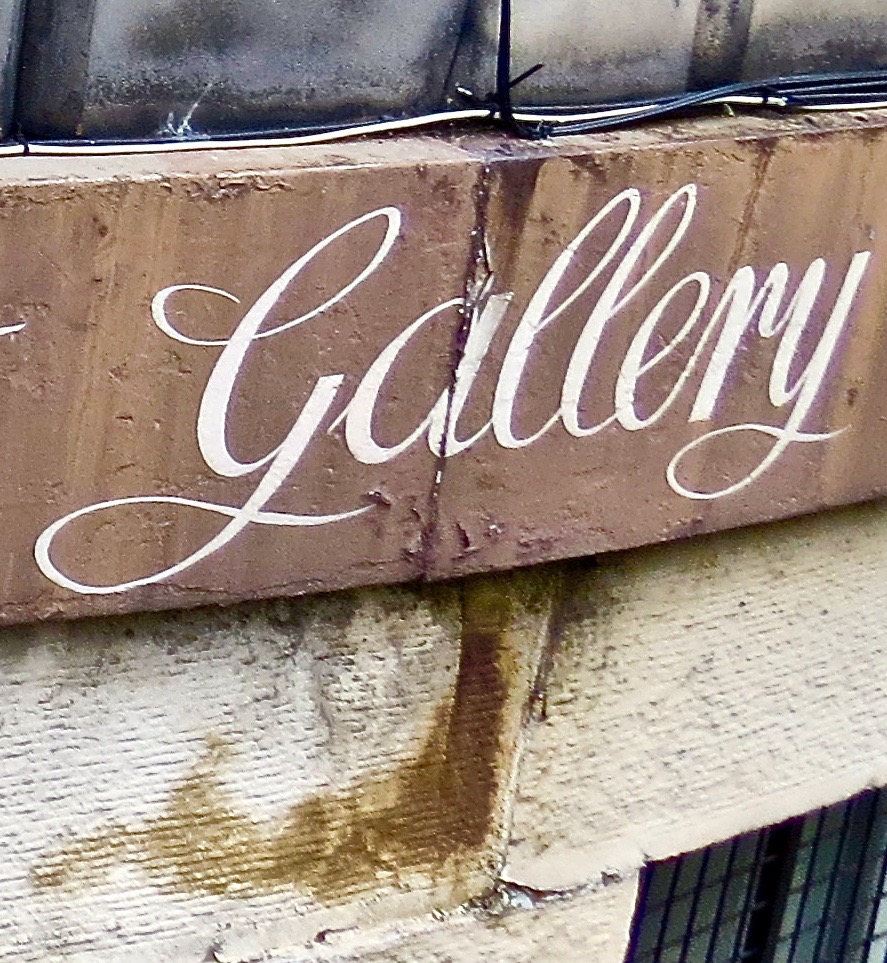
On reflection, though, my reading of the situation could have been completely mistaken.
Do sidelined shutters and de-stressed drapes in fact signify a compassionate attitude to the huddled masses? Do they symbolise a felt connection to the street and community?
Could a local Christ the Redeemer lurk benevolently behind every door? If you knock, will you be warmly received, invited to sit beside the fire with a glass of port?
Perhaps.
In any case, this propinquity gives an interesting texture to an evening stroll. For me, it has the somewhat paradoxical effect of emphasising the Strangeness of that which lies beyond the sash.
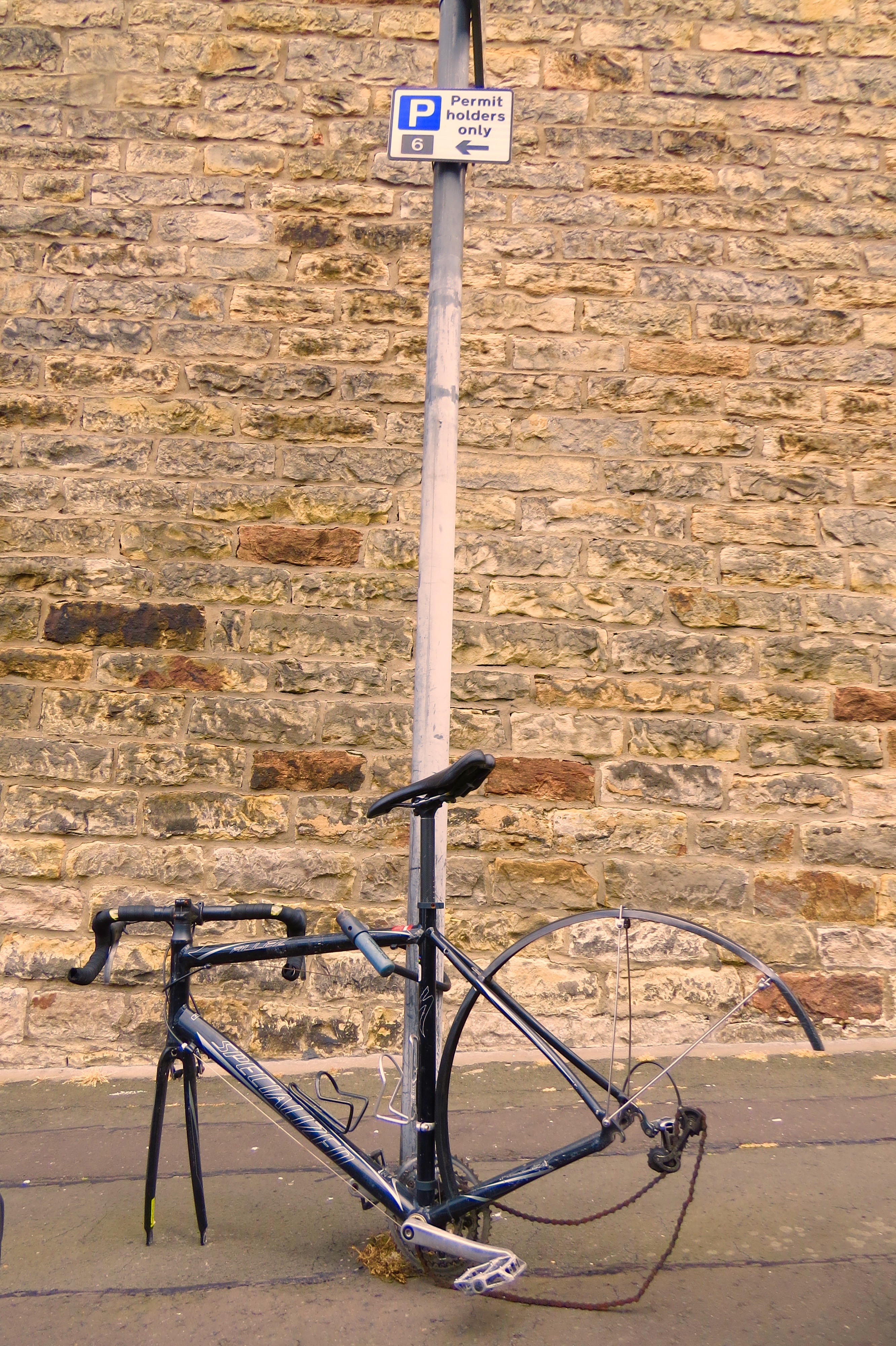
It's dirty work, admittedly, but, well, you know.
Observed in this manner, the New Town is nothing less than a living cabinet of uncurated curiosities and red-trousered reliquiae, displayed for one's delectation.
What could be more delightful?
Today's objet, a stunted piste in the Georgian ghetto's eastern hinterlands, more than merits its place in the cabinet. It contains, compacted on its short tarmacked run, mythology, modernity, mystery.
To arrive at its southern apex is to be met by a pair of majestic new builds, the thoroughly charming Two Graces of Hart Street. Some pronounce themselves scandalised by these daughters of an urban Zeus, vexed by a lack of harmony with the street's dominant mien.
Poppycock.
These contemporary homes, like their superannuated neighbours, go out of their way to privilege the wayfarer's gaze. They are welcome, and entirely apt, additions to the New Town zoo.
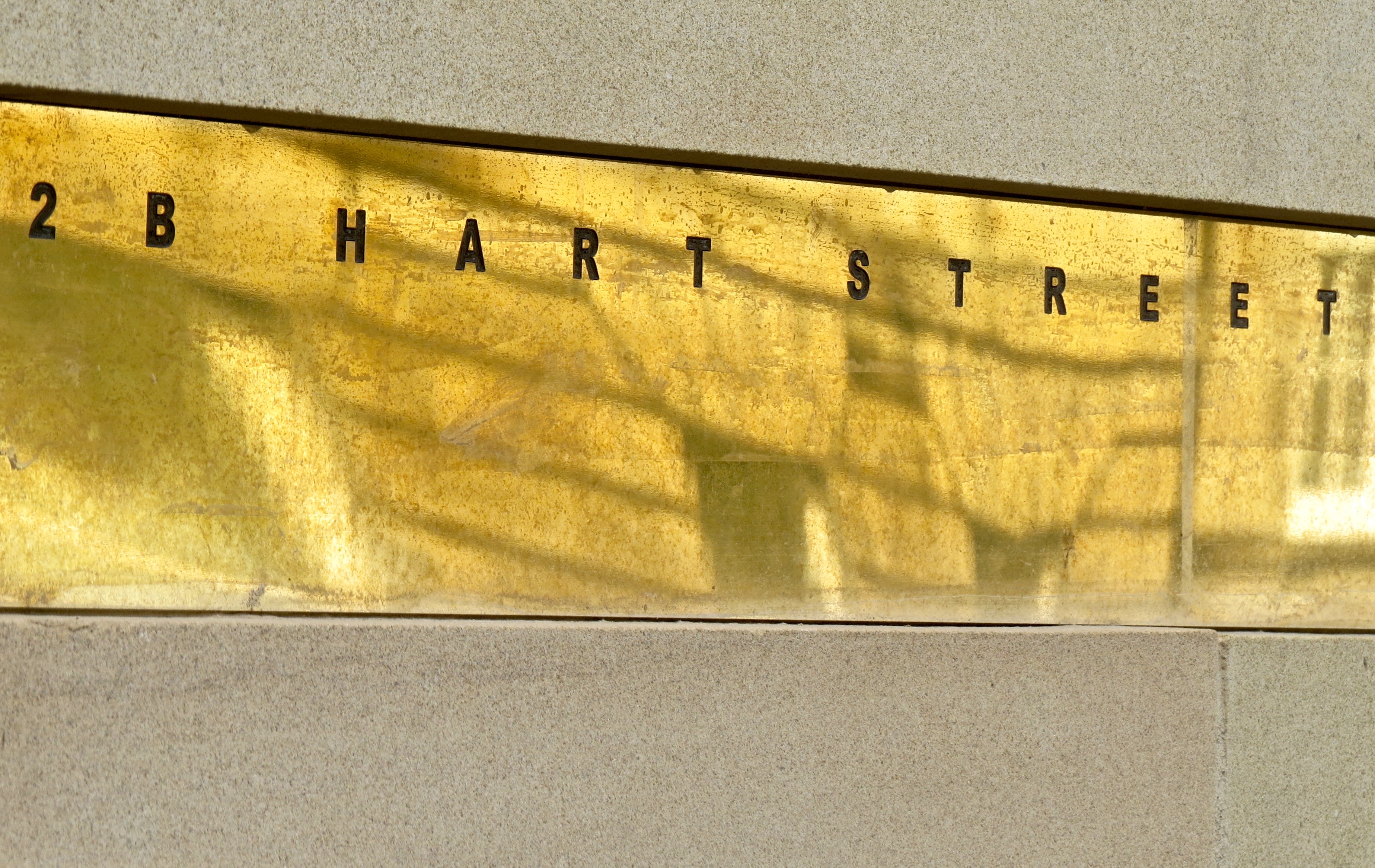
I do have one small qualm about the steelier of the two: the hot tub and coloured lighting are perhaps better suited to the more tropical climes of a discreet and ever so slightly louche venue a little way downhill.
I'll think I'll leave a note.
On little Hart Street, individual consciousness brushes up against something bigger: humanity in its imperfections and fallibility. It is a street of comings and goings: the sauna and the Exit, the knave and the grave, hot tubs and body rubs.
If for nothing else, it should be commended for having the courage to display, or at least to remind us of, that which many would prefer out of sight and mind. (I do feel, though, that whoever erected the No Entry sign adjacent to the sauna has been misinformed.)
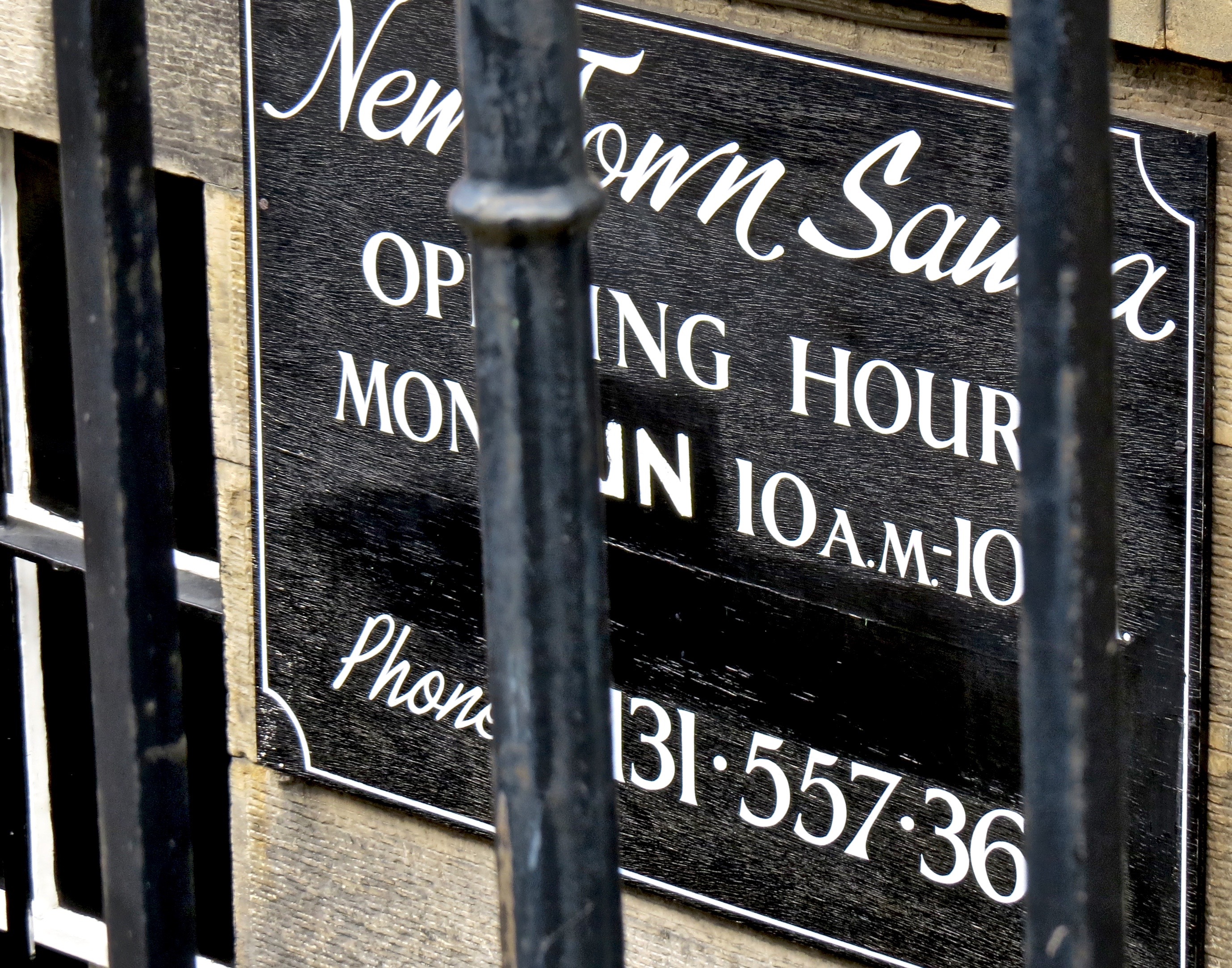
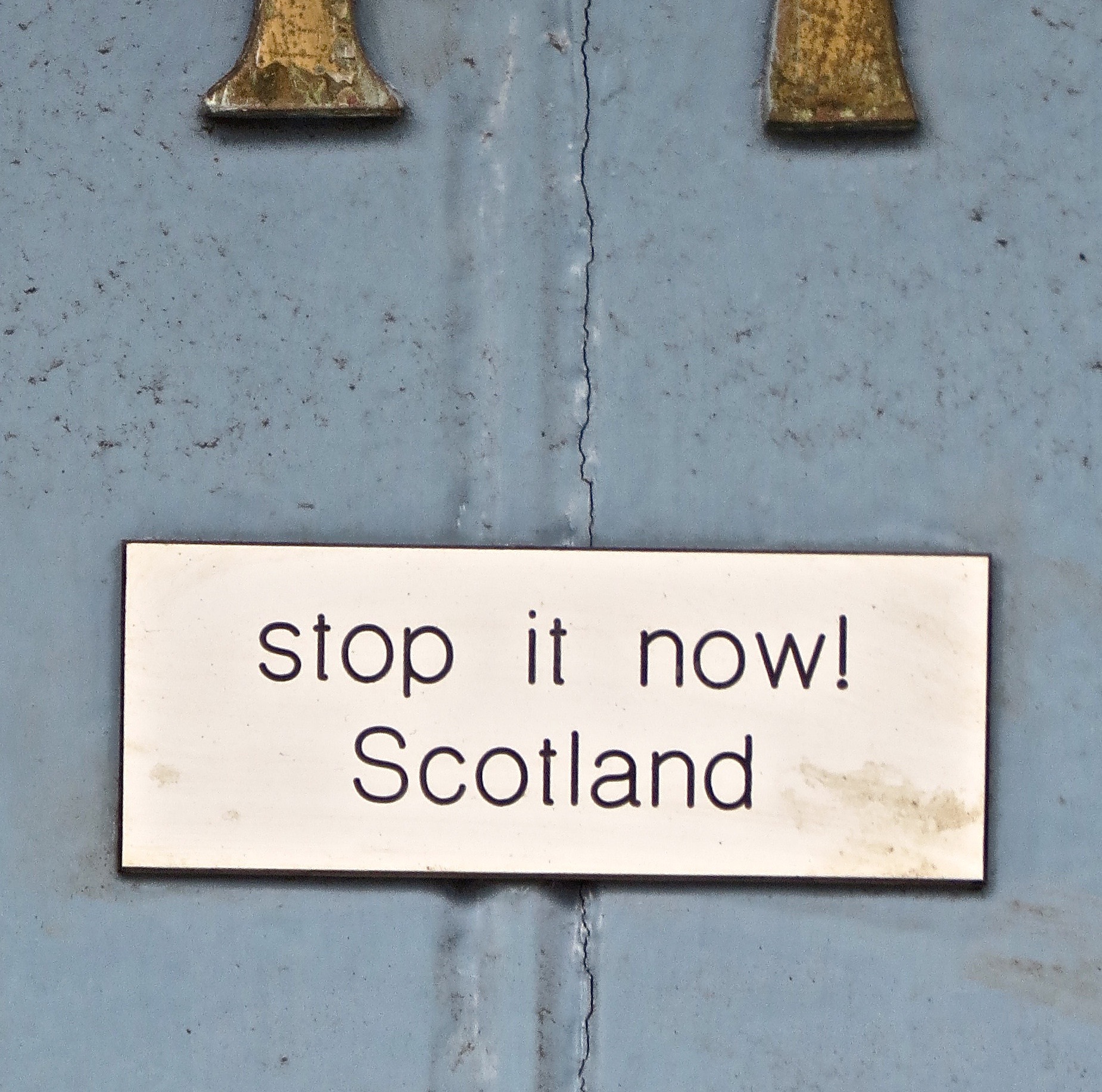
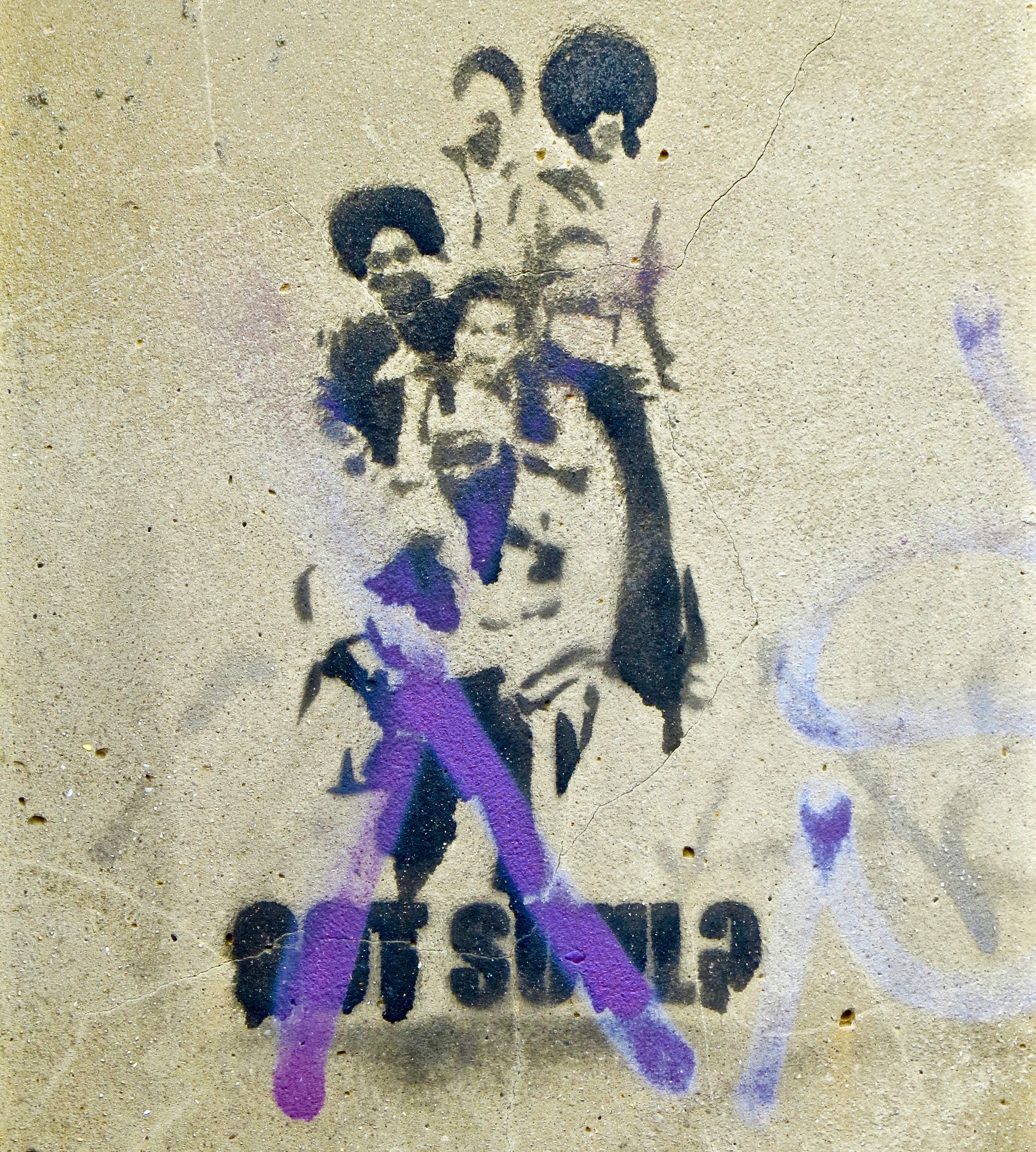
Neighbouring Hart Street Lane is less concerned with matters of the flesh. Its dusky light and fusty odours are more resonant of a spiritual past.
Shaded under the benign scrutiny of surrounding tenements, its energies flow through rear gardens towards an incongruous source: a building once believed to have been a Catholic monastery, now credited with a former Huguenot identity.
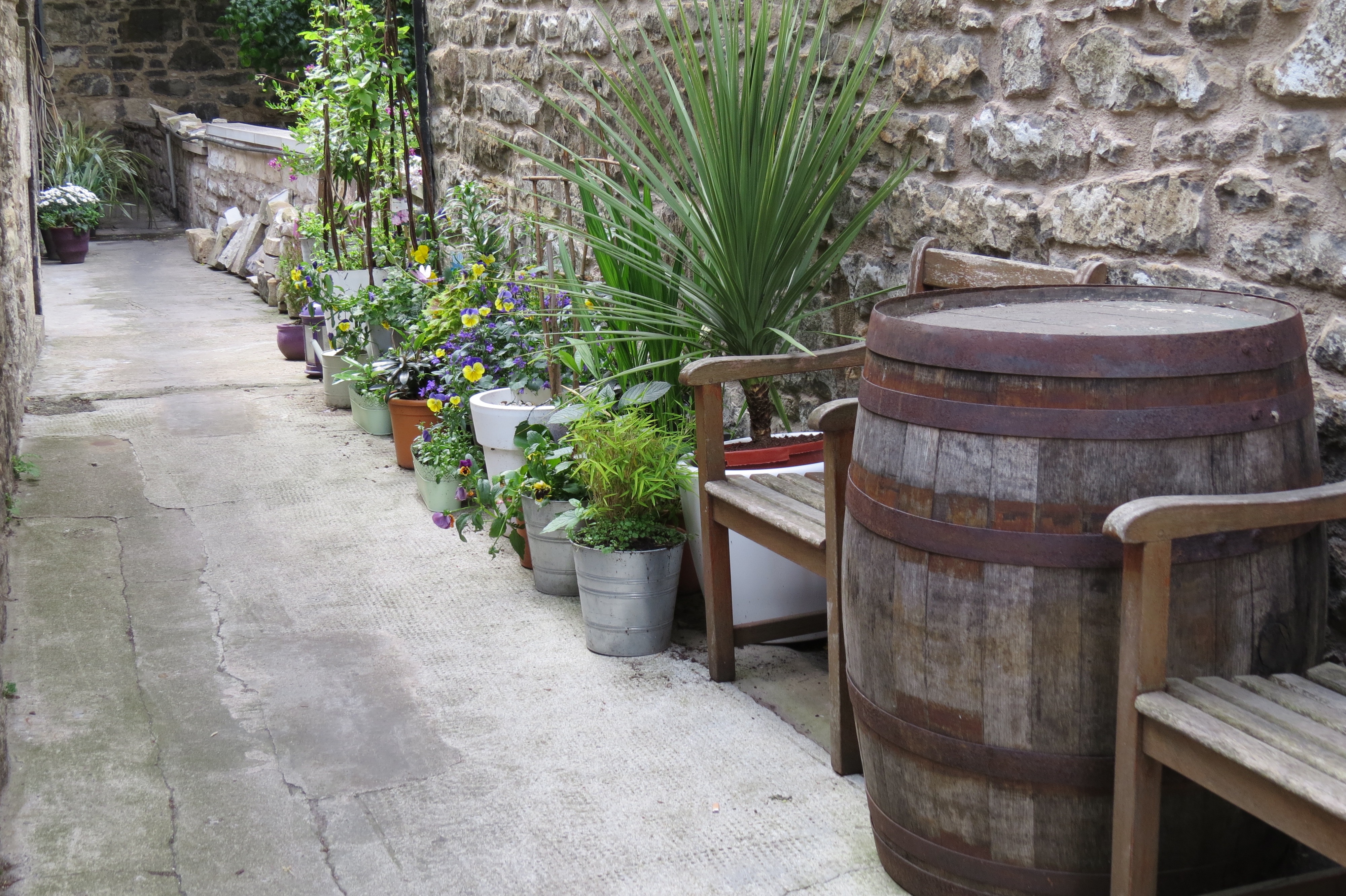
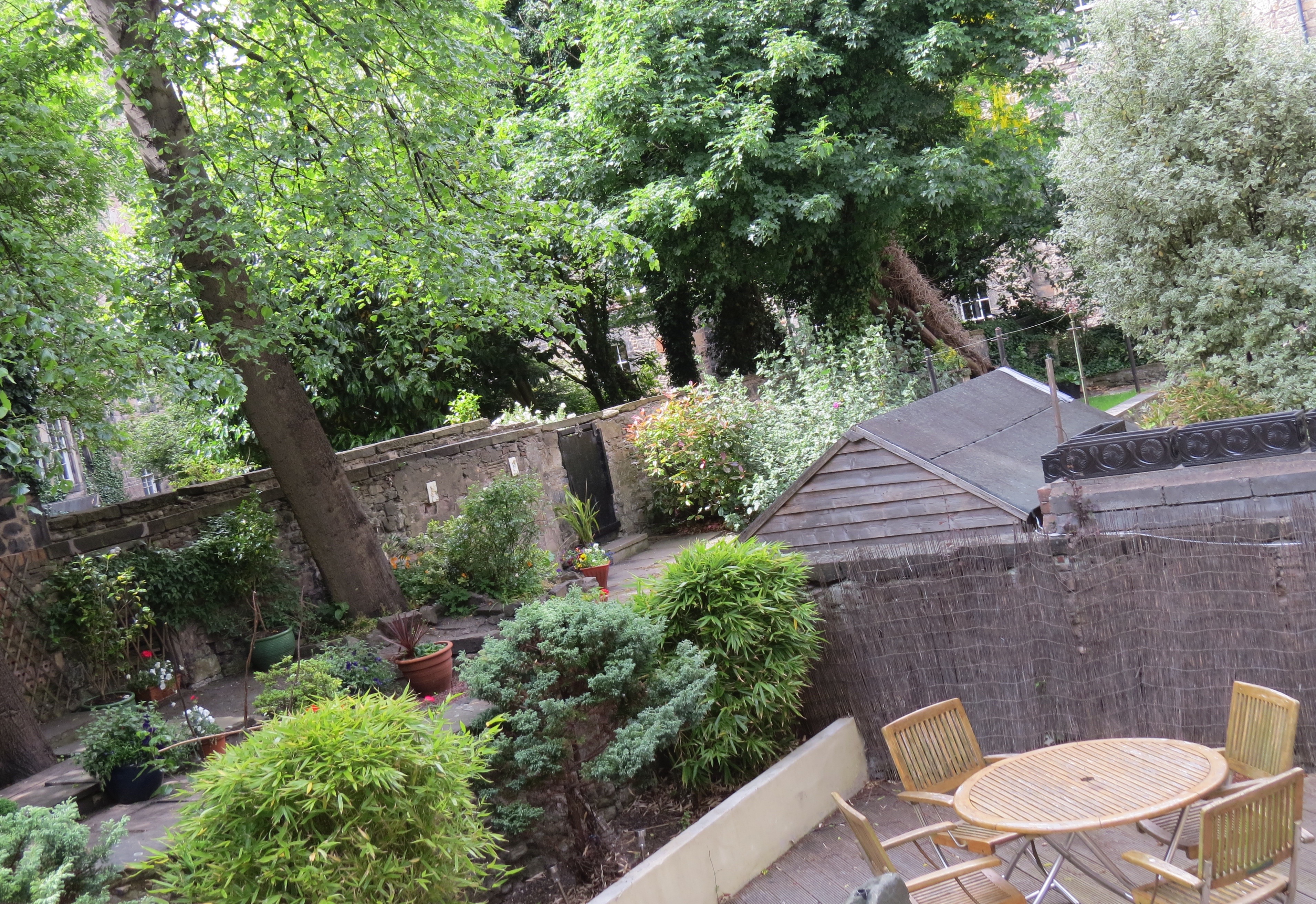
I've long believed that I, too, have something of the religious about me, the Franciscan to be precise.
Like St Francis himself, I occasionally talk to local animals, in my case tweed-jacketed ones.
Mostly, though, I prefer to observe these curios at home as they sit at ease on shabby chesterfields in lamp-lit salons, on streets yielded to the soft reds and deep blues of the New Town twilight.
It keeps me more than satisfied. —David Hill